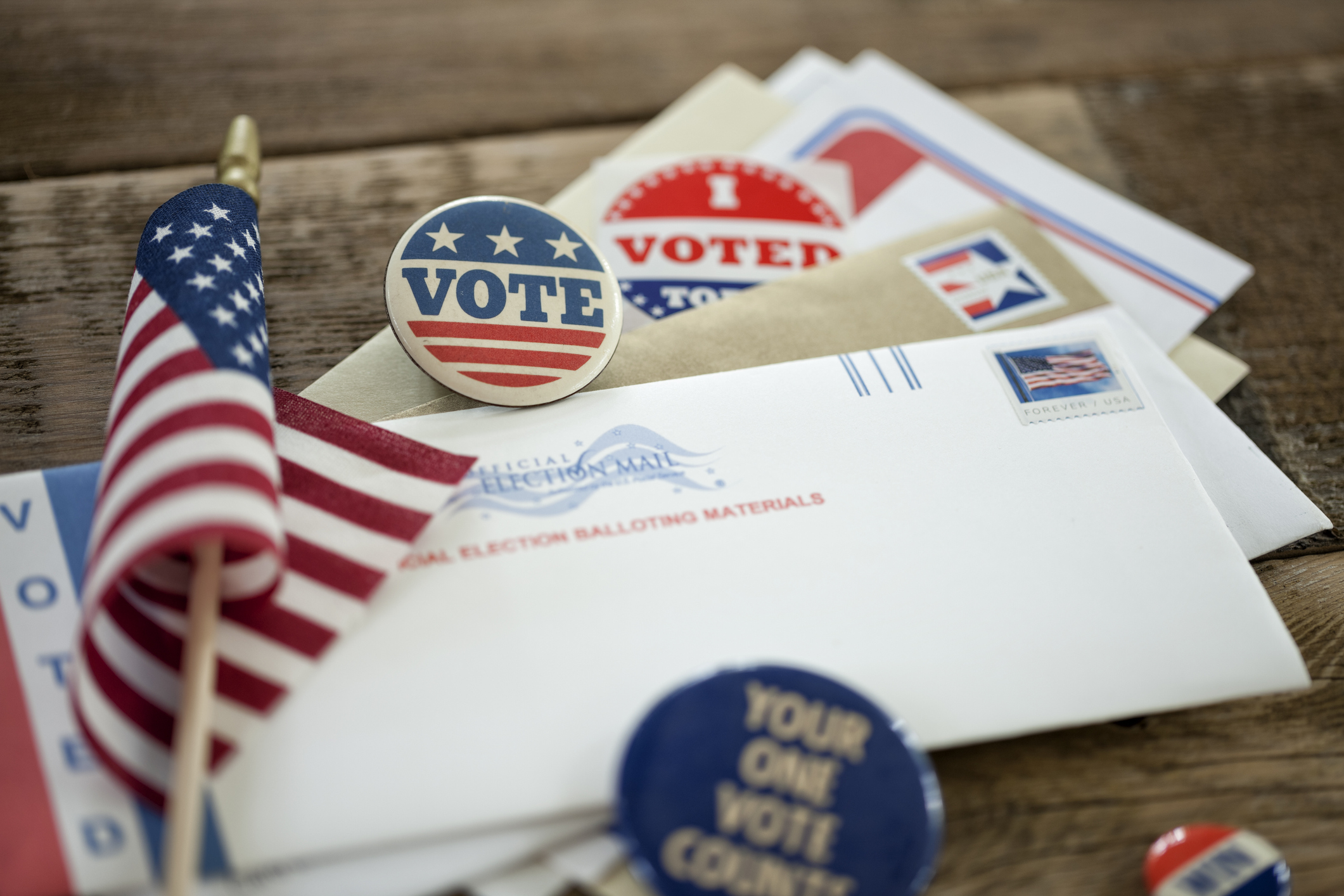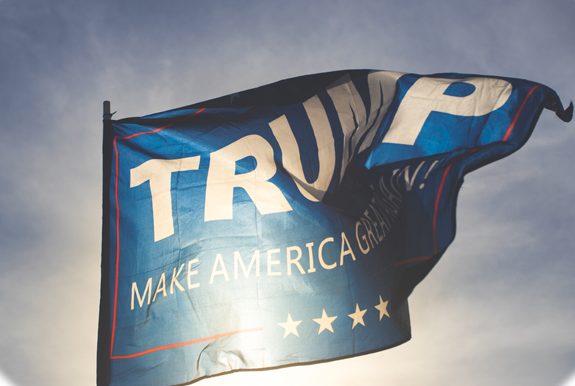Democracy and despotism in a digital age.
What Do Voters Actually Care About?

The issues-versus-intangibles election.
No presidential race in the past half-century has featured a major party nominee who didn’t enter a single primary, an incumbent president who exited the race before November, a former president looking to regain office, or an assassination attempt. This strange 2024 campaign has now featured all four. It would hardly be surprising, then, if many voters are feeling a sense of disorientation akin to stumbling off of a dizzying carnival ride.
Amidst this chaos, however, some fundamentals remain. This election pits a very unpopular presidency (per RealClearPolitics, the current administration has a minus 15-point net approval rating, by far the worst in year four of a 21st-century presidency) against a relatively unpopular former president (per RCP, Donald Trump has a minus nine-point net favorability rating). The election-deciding question, therefore, might well be this one: Which entity are voters more eager to sweep away from the American political scene: the Joe Biden (and Kamala Harris) administration or Donald Trump?
The answer to that question, in turn, may well come down to whether voters are thinking more about issues or about intangibles when they cast their ballots. Relatedly, it may well come down to whether they view Vice President Kamala Harris as a key player in the Biden-Harris Administration or as fresh new blood.
The Democratic National Convention last week sought to cast Harris in both lights—as the embodiment of “Hope and Change” (the 2024 rereleased version) and as Biden’s vital co-pilot during what it depicted as a highly (and even historically) successful presidency. The latter portrayal isn’t likely to help Harris win over the millions of undecided voters who don’t like Trump but also don’t think this administration has been remotely successful on matters of policy. Indeed, of the five major policy issues most likely to influence this election—inflation, immigration, crime, abortion, and world affairs—four pretty clearly favor Trump.
Inflation is the issue on which the Biden-Harris presidency is generally thought to be most vulnerable. Inflation was higher during this administration’s first three years of office than during the first three years of any other newly elected (first time) president in the past 100 years except for Jimmy Carter—who lost his reelection bid to Ronald Reagan by 400 electoral votes. It has been a curious decision of late for Harris to choose to emphasize these price increases—albeit while blaming them on corporate greed rather than on profligate federal spending and basic economic principles of supply and demand—and to call for even more federal power and control over everyday Americans’ lives in the form of price controls. While downplaying inflation probably wasn’t going to work for Harris, either, at least it wouldn’t have spawned unofficial ads like this potent 14-second hit.
Immigration is a second major vulnerability for Harris, especially given her role as Biden’s border czar. Here the Harris campaign’s strategy has been to argue that illegal immigration has improved in recent months, and that Harris would improve it further. But this will likely be a tough sell to voters after the immigration sea change under Biden-Harris, well captured by this U.S. Customs and Border Protection statistic: In December 2020, under Trump, the U.S. Border Patrol released 17 aliens into the U.S.; in December 2023, under Biden-Harris, it released 191,142—more than 11,000 times as many.
The issue of crime, likewise, favors Trump. According to official figures from the Bureau of Justice Statistics, from 2019 (the last year before the summer of George Floyd and leftist defund-the-police efforts) to 2022 (the most recent figures available), violent crime rose a whopping 58% in urban areas—the very places where left-leaning prosecutors adopted lax enforcement policies. (Violent crime rates didn’t change to a statistically significant degree in suburban or rural areas.) Harris’s selection of Tim Walz, who fiddled while Minneapolis burned, likely won’t help her on this issue.
Meanwhile, loose talk of a potential world war or the use of nuclear weapons is far more common now than just a short while ago, and few voters likely view the world as a safer place now than they did during the Trump presidency.
The lone major issue that might favor Harris is abortion. The Democratic Party is now celebrating abortion as an unequivocal good, while at the same time deliberately masking the fact that most abortions involve the intentional killing of perfectly healthy developing boys or girls in their mother’s womb. Irrespective of the moral concerns at stake, Republicans face electoral challenges here, which is likely what has motivated the vacillation on Trump’s part that has so incensed social conservatives. Yet even on this issue, exit polling has shown that most voters are somewhat in the middle—neither wanting abortion to be always allowed nor always banned—and that those in the middle more often favor Republican than Democratic candidates.
Despite his big advantages on the issues, however, Trump is not close to being a shoo-in to win this election. He might even be the underdog. That’s because many voters dislike him for reasons of comportment. In this vein, exit polling from the 2022 midterms found that 28% of voters cast their House vote to “oppose” Trump, who was no longer even in office and wasn’t yet a declared presidential candidate. That opposition to Trump was enough to negate seven-eighths of the anti-Biden vote. Similarly, in polling conducted about a year ago, independent voters were asked, “Who are you hoping will NOT be nominated by either party for president?” Thirty-nine percent listed Trump as the person they most hoped wouldn’t be nominated, surpassing even the 37% who listed Biden.
So this is the issues-versus-intangibles election. Which half of that equation voters will be thinking about when they cast their ballots might have a lot to do with whether they view Harris as the “next-in-line” candidate or as new blood. Over the past 30 years, next-in-line nominees—those who were the runner-up during their party’s previous open nomination process (one not featuring an incumbent president of that party) or else had served as vice president—have notched one win and five losses (a .167 winning percentage), winning an average of 41% of the electoral vote. Over that same span, new-blood candidates—George W. Bush in 2000, John Kerry in 2004, Barack Obama in 2008, and Donald Trump in 2016—have posted three wins and one loss (.750) and have won an average of 56% of the electoral vote.
Harris is a next-in-line candidate being marketed as a new-blood candidate. Whether voters think of her as someone tied to the Biden-Harris record or as a fresh face may well tip the balance, one way or the other, on November 5.
The American Mind presents a range of perspectives. Views are writers’ own and do not necessarily represent those of The Claremont Institute.
The American Mind is a publication of the Claremont Institute, a non-profit 501(c)(3) organization, dedicated to restoring the principles of the American Founding to their rightful, preeminent authority in our national life. Interested in supporting our work? Gifts to the Claremont Institute are tax-deductible.
In 2010, Claremont Institute Senior Fellow Angelo Codevilla reintroduced the notion of "the ruling class" back into American popular discourse. In 2017, he described contemporary American politics as a "cold civil war." Now he applies the "logic of revolution" to our current political scene.
Claremont Institute Senior Fellow John Marini is one of the few experts on American Government who understood the rise of Trump from the beginning of the 2016 election cycle. Now he looks to the fundamental question that Trump's presidency raises: is the legitimacy of our political system based on the authority of the American people and the American nation-state, or the authority of experts and their technical knowledge in the service of "progress"?




